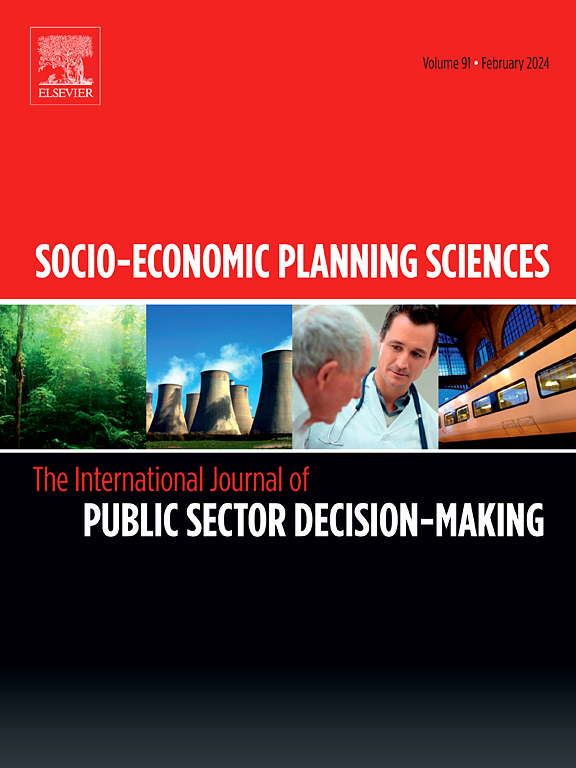生产性职业-分析本地化和专业化作为发展驱动力的地域因素的方法论建议
IF 5.4
2区 经济学
Q1 ECONOMICS
引用次数: 0
摘要
本文提出了生产性职业(PV)现象,这是本研究衡量和促进领土经济发展的方法建议。PV被定义为对一组结构相似性(劳动力、生产能力、功能、专业化、企业家精神等)和与其他领域的互动做出反应的高生产敏感性(弹性)的存在。该研究的重点是2008年至2018年智利宏观区域北奇科和巴塔哥尼亚的节点中心作为参考区域。据观察,这种PV的存在使中心成为发展的真正引擎,相似性和互动促进了生产关系。但是,鉴于两个宏观区之间的差异,必须根据每个地区的情况制定政策,同时考虑到影响生产性交换的各种变数。最后,我们观察到较小的中心(或中间城市)如何对较大的中心施加压力并补充它们,以提高它们的敏感性。本文章由计算机程序翻译,如有差异,请以英文原文为准。
Productive vocation - A methodological proposal for the analysis of territorial factors of localization and specialization as drivers of development
This paper presents the phenomenon referred to as Productive Vocation (PV), which is a methodological proposal of this study to measure and promote the economic development of territories. PV is defined as the existence of high productive sensitivity (elasticity) in response to a group of structural similarities (labor, productive capacity, functionality, specialization, entrepreneurship, among others) and interaction with other territories. The study focuses on the nodal centers of the Chilean macrozones Norte Chico and Patagonia from 2008 to 2018 as reference territories.
It was observed that the presence of this PV allows centers to act as true engines of development, with similarity and interaction fostering productive relationships. However, given the differences between the two macrozones, policies must be tailored to each territory, taking into account the variables that sensitize productive exchange.
Finally, it was observed how smaller centers (or intermediate cities) pressure and complement the larger ones to increase their sensitivities.
求助全文
通过发布文献求助,成功后即可免费获取论文全文。
去求助
来源期刊

Socio-economic Planning Sciences
OPERATIONS RESEARCH & MANAGEMENT SCIENCE-
CiteScore
9.40
自引率
13.10%
发文量
294
审稿时长
58 days
期刊介绍:
Studies directed toward the more effective utilization of existing resources, e.g. mathematical programming models of health care delivery systems with relevance to more effective program design; systems analysis of fire outbreaks and its relevance to the location of fire stations; statistical analysis of the efficiency of a developing country economy or industry.
Studies relating to the interaction of various segments of society and technology, e.g. the effects of government health policies on the utilization and design of hospital facilities; the relationship between housing density and the demands on public transportation or other service facilities: patterns and implications of urban development and air or water pollution.
Studies devoted to the anticipations of and response to future needs for social, health and other human services, e.g. the relationship between industrial growth and the development of educational resources in affected areas; investigation of future demands for material and child health resources in a developing country; design of effective recycling in an urban setting.
 求助内容:
求助内容: 应助结果提醒方式:
应助结果提醒方式:


